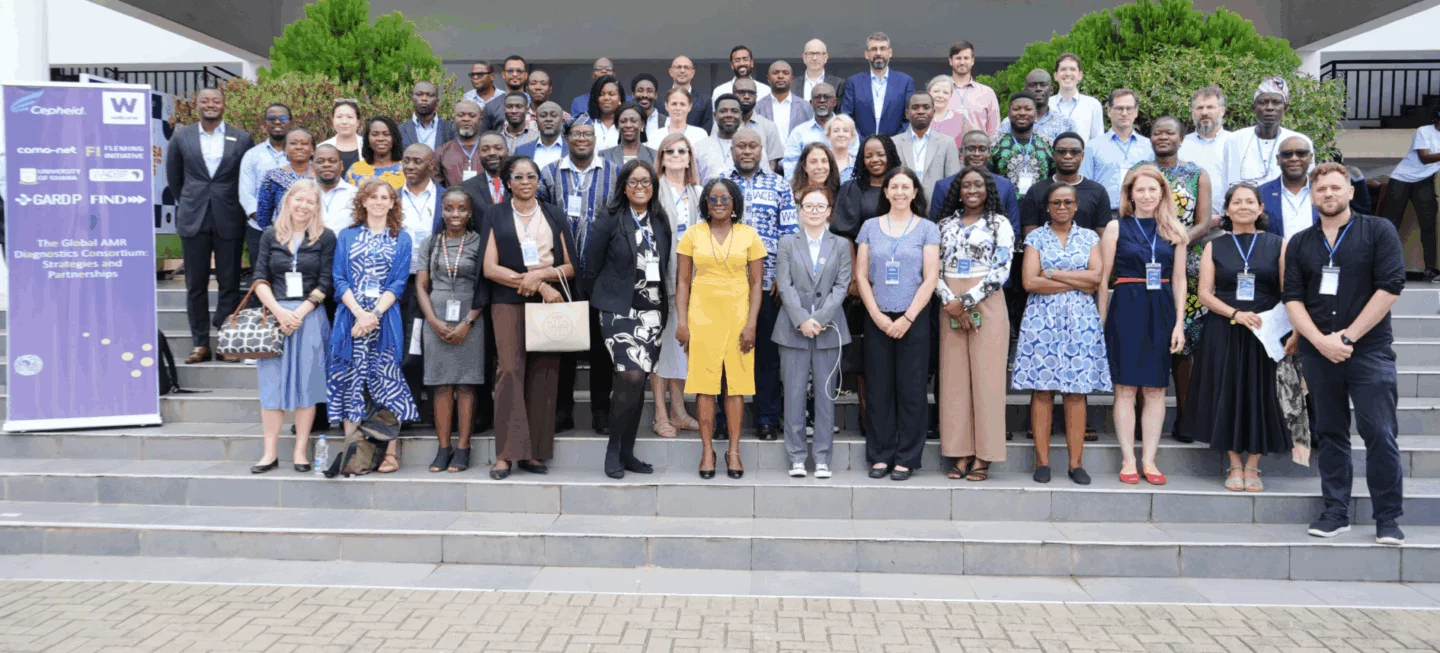New global collaboration launched to tackle antimicrobial resistance through improved diagnostics
17 June 2025

Accra (Ghana), 17 June 2025 – A new global collaboration has been launched to accelerate access to and effective use of diagnostics in the global effort to address antimicrobial resistance (AMR). The new initiative will aim to address the urgent need for a collaborative approach to scale up the use of diagnostics to address AMR.
The collaboration, convened at the University of Ghana, brings together global and regional leaders to strengthen diagnostic innovation, implementation, and equity with a focus on low- and middle-income countries where the burden of AMR is highest. Led by The Fleming Initiative, GARDP, and FIND, the two-day launch meeting featured a series of expert-led sessions on diagnostic access, innovation, policy, data use, and market shaping.
Partners contributing to the collaboration include the Wellcome Trust, Africa CDC, CAMO-Net, WACCBIP, Cepheid, and the Ghana Ministry of Health, with further support from CARB-X, ICARS, the Global AMR R&D Hub, and the Fleming Fund. With representatives from a wide range of institutions, from national governments to the World Health Organization (WHO), participants agreed on the need to build on the momentum of the inaugural meeting in Ghana by ensuring strong leadership from low- and middle-income countries in shaping the collaboration’s future.
“This is just the beginning,” said Professor Gordon Awandare, Director of WACCBIP, who hosted the launch. “Being able to host the launch at the University of Ghana affirms the importance of African institutions leading global conversations about AMR. We’re proud to be part of building a roadmap for change.”
Professor Alison Holmes OBE, Director of the Fleming Initiative and co-convener of the launch event, added: “To effectively address AMR, we must embed diagnostics at every level of healthcare. That means listening to, learning from, and working with those closest to the challenge.”
Dr Silvia Bertagnolio, Head of the AMR surveillance, Research and Laboratory Strengthening Unit at WHO, who spoke at the launch, emphasised the critical role this new global diagnostics collaboration could play alongside WHO in addressing AMR: “I see a strong opportunity for this collaboration to be established as an integral part of the broader WHO Global Coalition on Diagnostics, and to play a key role in supporting WHO’s AMR Diagnostic Initiative. Ensuring alignment and coherence with these global efforts is essential to closing healthcare gaps and positioning diagnostics at the forefront of the global response to antimicrobial resistance.”
A public report summarising discussions and next steps will be made available within a month. Further details on the collaboration’s goals and governance structures will be shared later this year.
Further information: